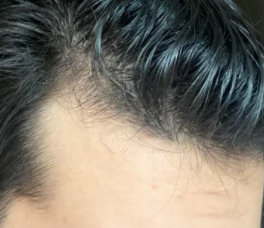I recently had a hair transplant and I hate to tell you how much I paid. What I am writing about is that after the surgery, the the instruction sheet they gave me is very poorly constructed and when I tried to call the doctor to ask questions, I got a message telling me to go to my local emergency room. Is that an acceptable way to do business or are there standards that doctors must adhere to with regard to giving patients the information they need?
There are no standards other than the Hippocratic Oath which is: I swear by Apollo the physician, by Æsculapius, Hygeia, and Panacea, and I take to witness all the gods, all the goddesses, to keep according to my ability and my judgement, the following Oath. “To consider dear to me as my parents him who taught me this art; to live in common with him and if necessary to share my goods with him; to look upon his children as my own brothers, to teach them this art if they so desire without fee or written promise; to impart to my sons and the sons of the master who taught me and the disciples who have enrolled themselves and have agreed to the rules of the profession, but to these alone the precepts and the instruction. I will prescribe regimen for the good of my patients according to my ability and my judgement and never do harm to anyone. To please no one will I prescribe a deadly drug nor give advice which may cause his death. Nor will I give a woman a pessary to procure abortion. But I will preserve the purity of my life and my art. I will not cut for stone, even for patients in whom the disease is manifest; I will leave this operation to be performed by practitioners, specialists in this art. In every house where I come I will enter only for the good of my patients, keeping myself far from all intentional ill-doing and all seduction and especially from the pleasures of love with women or with men, be they free or slaves. All that may come to my knowledge in the exercise of my profession or in daily commerce with men, which ought not to be spread abroad, I will keep secret and will never reveal. If I keep this oath faithfully, may I enjoy my life and practice my art, respected by all men and in all times; but if I swerve from it or violate it, may the reverse be my lot.”
The oath of Maimonides: Oath and Prayer of Maimonides is another iteration of this oath, possibly more comprehensive and more extensively used today. Somehow I sense that the concept of an oath is either not taken seriously today or manipulated to meet the ends of the oath taker. Let’s look as some lines in the Hippocratic Oath as it pertains to your question:
“Grant me the strength, time and opportunity always to correct what I have acquired, always to extend its domain to look upon his children as my own brothers never do harm to anyone”. I take this to mean that our patients should be treated as our children, with respect and with regard to the entirity of their care. “Making a surgeon (any doctor) available to a patient he accepts as his/her responsibility” I read with interest and found no bounds to the timing of the responsibility possibly limited by reasonableness. “In every house where I come I will enter only for the good of my patients, keeping myself far from all intentional ill-doing” Here I define the house as the body of the patient, again open ended with regard to time and mechanism and the failure to adequately communicate or make oneself available can clearly do harm so ‘Ill-Doing’ can be done by not taking this responsibility seriously.
With today’s technology is is easier to be a better doctor. For example, I carry a cell phone and EVERY patient has 24/7 access to me, even on when I am on vacation, provided that I have cellular reception. I constantly am trying to improve my written instructions and learn by each phone call. Even more importantly, I prepare each patient thoroughly prior to the surgery with:
- a book I wrote which is possibly the most extensive book in the world on hair restoration surgery;
- a one hour, private consultation with most patients (sometimes longer). After the consult I put my findings and recommendations into a three to four page detailed letter customized for each patient. That frees the patient up to listen and learn and ask questions of me during the consult, at the onset of the process;
- open house events which are well known all over the United States. We originated the open house concept in hair transplantation and during our Los Angeles Open Houses we sometimes have a dozen patient examples of our work that you can examine for yourself.
Education and preparation make post operative follow-up easier on everyone, patient and doctor. I set my standard of care high, to better serve my patients, starting at the time of our first meeting. So while you may not have received post operative care that met your standards (or that of NHI), the physician may have felt that they provided an acceptable level of care .

